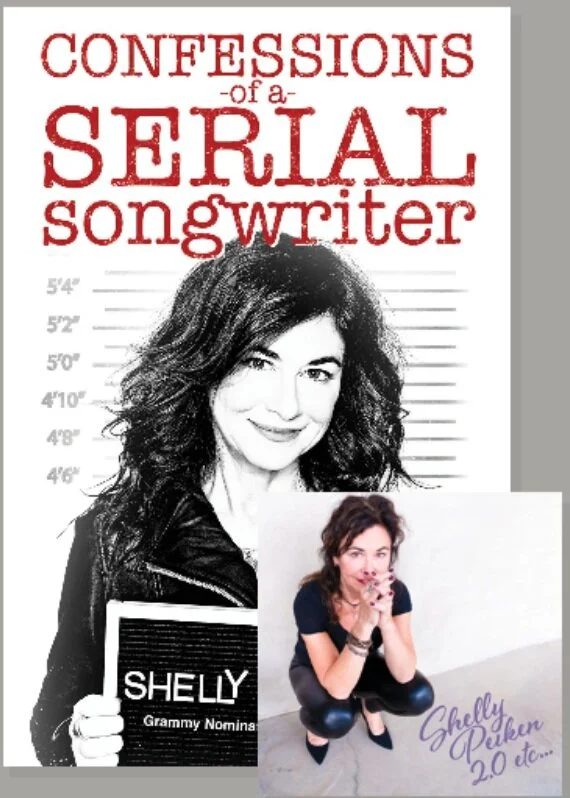Dark Horse vs Joyful Noise
If you’re a pop music enthusiast and/or a Katy Perry fan you’re probably aware that she (and 5 co-writers) were sued for copyright infringement for their 2013 chart topping “Dark Horse,” which Christian rap artist Flame alleges borrowed from his song “Joyful Noise.” The 2 songs have a similar “ostinato,” (a background texture — in this case in the verse — that highlights the melody).
Here’s “Joyful Noise”
Here’s “Dark Horse” (FF to :20 secs)
A jury decided that “Dark Horse” did in fact infringe (knowingly or not) and Flame was awarded 22.5% of the song. But with the decision of another similar case which ruled in favor of Led Zeppelin’s “Stairway to Heaven” over Spirit’s “Taurus” the judge reversed the “Dark Horse” verdict finding that the individual notes in the osinato were not copyright protectable. Flame is now appealing that decision.
Recently I was asked to consider signing an Amicus brief (a petition) in support of the “Dark Horse” position. Newsflash, if your song were in the test tube you may not want me on the jury. I tend to hear things my colleagues don’t. On the other hand I’m concerned that the onslaught of lawsuits of late are threatening the creativity of my community. Still, I want to be thoughtful about each individual case. So let’s take a deeper dive.
First of all, infringement suits should not be popularity contests. You may adore Katy (as I do) and want to defend your idol but it’s only fair to ask yourself…
1- if you’d feel the same about the 2 compositions if the defendant were an unknown.
2- if you were the author of “Joyful Noise” would your eyes have widened upon hearing “Dark Horse”?
Some say it’s a no brainer: that there’s no ‘there there.’ Just as many didn’t hear the resemblance between “Blurred Lines” and “Got to Give it Up.” When I heard “Blurred Lines” for the first time, I thought it was “Got To Give It Up.” Maybe it’s part of the Laurel Yanny phenomenon. Some of us hear frequencies and tones that others simply don’t. And just because Robin Thicke admitted to wanting to write a song like “Got To Give It Up,” it doesn’t mean he actually accomplished (in a court of musicology) what he attempted to do. And if that’s the case is he then merely guilty of attempted infringement? (Don’t answer that. It’s rhetorical.)
Of course, there are laws. But it’s not as simple as ‘the same 8 note melody’ any more. Digital recording has made it effortless to borrow sounds. Some music libraries even allow for it so laws that mattered 20 years ago are harder to apply now. For instance one of the criteria needed to disprove infringement is to show there was “pre-existing” material that sounds like the material in question. Katy (et al) says there is. And I think she’s right. Because listen to Art of Noise’s “Moments In Love.” Duh!
You kinda have to believe Flame heard that! So, if “Moments In Love” is considered pre-existing material (which could get Katy off the hook) would she then be accountable to that song? By the same token would Flame be as well since it preceded both compositions? 😳
And speaking of “hearing that” another component of proof is ‘access’ — whether or not the defendants heard the plaintiff’s song before they wrote theirs. Thing is, access was easily measurable pre-internet era. A song was either commercially released and available or it wasn’t. Now virtually everything is online whether it’s a big hit, a little hit or non-hit. It’s possible any song was ‘accessible.’ Therefore, IMO that law should be umm…reevaluated.
So, there are laws. But there are emotions. Favoritism. Perspective. Public opinion. Intentions. The blurred lines of Technology! Things get tangled up.
An anonymous source in Variety Magazine says this: “There are only so many chord progressions and melodies that are pleasing to the ear, and they’re used over and over again.” I respectfully disagree. Effective pop chord progressions? Maybe. But in my view there are gazillions of melodies yet to be discovered, (thankfully). So please Mr. or Ms. Anonymous — do not give young writers (or any of us for that matter) an excuse to be lazy — an excuse to not explore and discover uncharted territory.
That said, my husband Adam always asks… ‘why can’t everyone just be more original?’ Well, in the age and culture of algorithms writers have to consider the common elements of successful tracks. I’d be lying if I told you I’ve never walked into a session and said, “Let’s listen to ‘fill-in-the-blank’ before we get started.”
Maybe you feel the feels of Flame, the (lesser known) plaintiff. Ironically a dark horse is defined as a candidate or competitor about whom little is known but who unexpectedly wins or succeeds.
Alternatively, you may feel strongly that the osinatos don’t have enough in common or that pre-existing material should nullify this suit.
And then there’s some middle ground. What if, should the ruling of copyright infringement stand, the court consider less than the 22.5% participation awarded by the jury?
Here’s a mash-up: What do you think?
Thanks for reading, my friends. Have a listen to my new album, 2.0 etc... If you'd like to receive my blog via email, please click here. Follow me on Twitter and Insta. Visit my Serial Songwriter Facebook Page. Stay Safe! ☮️
If you’d like to gift a signed copy of Confessions of a Serial Songwriter or a CD of my Album, 2.0 etc… (or both😛) click here!


